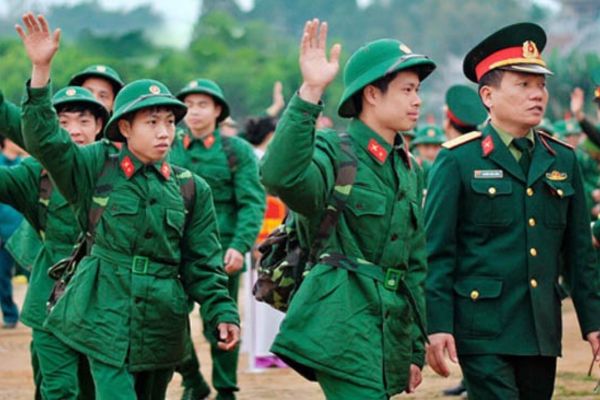Is the Time Spent for Military Service Health Examinations Counted as Paid Working Hours?
Is the time spent on military service health checks counted as paid working hours?
Pursuant to Article 58 of Decree 145/2020/ND-CP stipulating the time counted as paid working hours, as follows:
Time counted as paid working hours
1. Rest time stipulated in Clause 2 Article 64 of this Decree.
2. Breaks according to the nature of the work.
3. Necessary rest periods during the labor process included in the labor norms for the natural physiological needs of humans.
4. Rest time for female workers during pregnancy or while nursing a child under 12 months old, during menstruation as stipulated in Clauses 2 and 4 Article 137 of the Labor Code.
5. Time stopping work not due to the worker’s fault.
6. Time for meetings, study, training at the employer’s request or with the employer's consent.
7. Time for apprentices, trainees directly participating or engaging in labor as stipulated in Clause 5 Article 61 of the Labor Code.
8. Time that employees who are members of the leadership of labor representative organizations at the establishment use to perform tasks as stipulated in Clauses 2 and 3 Article 176 of the Labor Code.
9. Time for health examinations, occupational disease detection, medical assessment to determine loss of working capacity due to work accidents, occupational diseases, if such time is arranged or required by the employer.
10. Time for registration, health examination, and medical check-ups for military service, if this time is paid as per the regulations on military service.
Thus, according to the above regulations, the time spent on military service health checks will be counted as paid working hours if this time is paid according to the regulations on military service.

Is the time spent on military service health checks counted as paid working hours? (Image from Internet)
Do employed individuals have to perform military service?
Pursuant to Article 4 of Military Service Law 2015 stipulating military service, as follows:
Military Service
1. Military service is the honorable duty of citizens to serve in the People's Army. Performance of military service includes active service and service in the reserve forces of the People's Army.
2. Citizens within the age group for military service, regardless of ethnicity, social class, belief, religion, educational level, occupation, or place of residence, must perform military service as stipulated by this Law.
.....
Simultaneously, Article 30 of Military Service Law 2015 stipulating the age group for conscription, as follows:
Age group for conscription
Citizens reaching 18 years of age are called for conscription; the age group for conscription is from 18 years to 25 years; citizens who have received postponement for conscription during their college or university education are called for conscription up to 27 years of age.
From the above regulations, it can be seen that, in general, male citizens within the age group from 18 to 25 years old or up to 27 years old if they are attending college or university must participate in military service.
Therefore, if a citizen is employed but still within this age group, he must perform military service to serve the country, except in cases where the citizen is deferred, exempted, or does not meet the standards to perform military service.
What actions are prohibited in military service?
According to the regulations in Article 10 of Military Service Law 2015 stipulating the prohibited acts during military service, as follows:
Prohibited Acts
1. Evading military service.
2. Opposing, obstructing the performance of military service.
3. Fraud in health examination for military service.
4. Abuse of position and authority contrary to military service regulations.
5. Improper use of non-commissioned officers and soldiers.
6. Violating the body, health; insulting the honor and dignity of non-commissioned officers and soldiers.
Thus, the prohibited acts in military service include:
- Evading military service.- Opposing, obstructing the performance of military service.- Fraud in health examination for military service.- Abuse of position and authority contrary to military service regulations.- Improper use of non-commissioned officers and soldiers.- Violating the body, health.- Insulting the honor and dignity of non-commissioned officers and soldiers.
LawNet